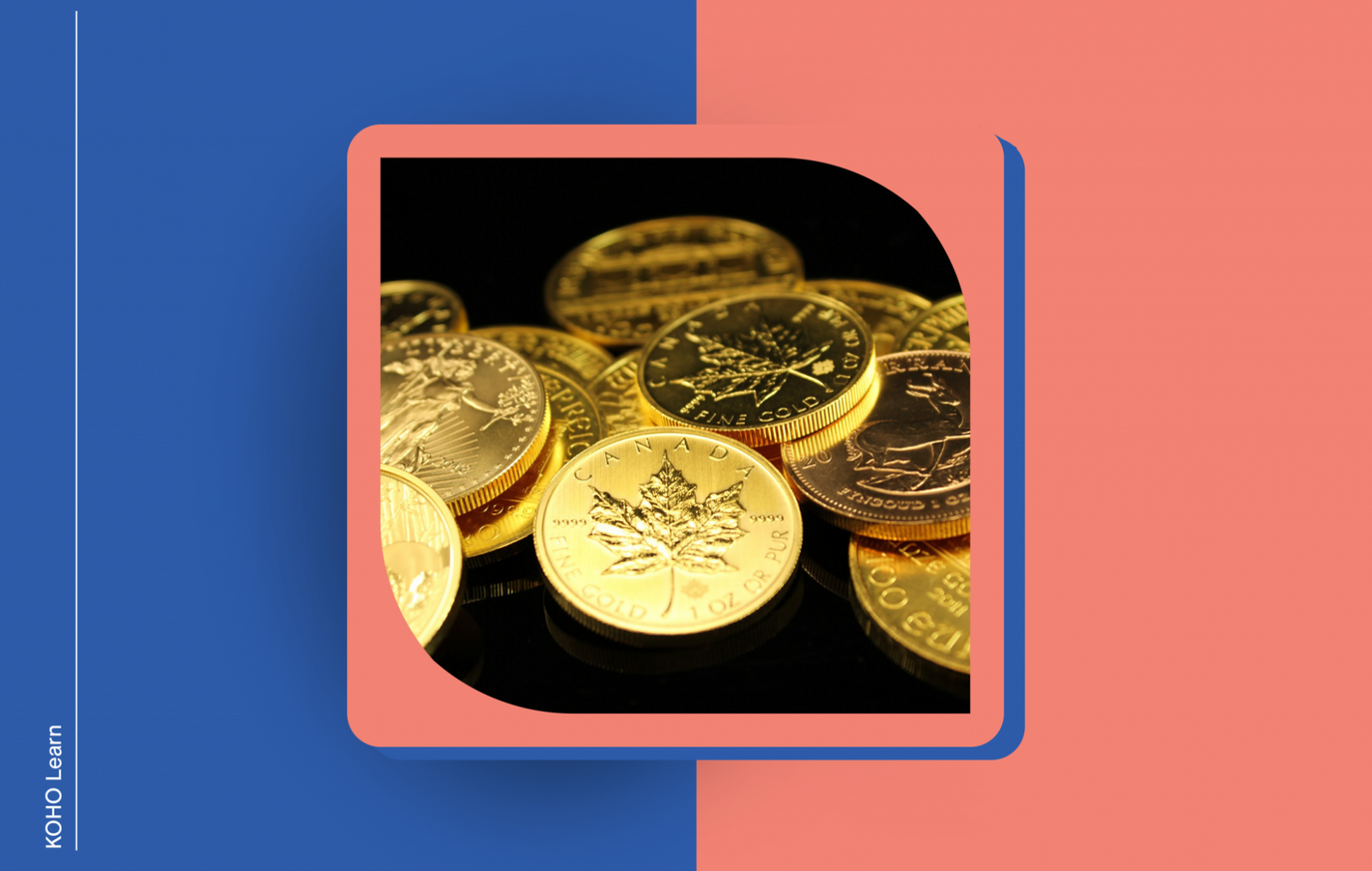
Rounding it up
Precious metals are historically associated with wealth, power, and status.
Some precious metals like gold have practical purposes (e.g. electronics manufacturing).
Gold, silver, platinum, and other precious metals are touted as resilient to inflation.
Precious metal scams often target the elderly and newcomers to this market.
Buying Precious Metals: Is It a Good Investment?
For as long as humans have bought and sold goods and services, precious metals like gold and silver have regularly traded hands over long distances. These ancient signifiers of wealth remain popular investment items to this day, though some economists and consumers alike harbor doubts about buying precious metals.
Still, there are valid reasons to be interested in purchasing precious metals, stones, and coins. Consumers across Canada and the United States have recently been buying substantially more precious metals than usual, for instance. Are precious metals really a good investment? Here’s what you should know about this market before spending your money.
Canadians and Americans are on a spending spree
SPEND SMARTER. SAVE FASTER
North American consumers and investors clearly have a serious interest in precious metals right now. According to data collected and presented by Trading Economics, Canadian imports of “pearls, precious stones, metals, [and] coins” soared upward to over $17 billion in 2020. In 2019, such imports were only just above $10 billion. This trend is matched in the United States, too.
One analysis from USA Today reports that American imports of gold, silver, and other precious metals also skyrocketed at the same time when imports in many other sectors were diminishing. According to the report, the value of precious metals coming into the US hit a 19-year high in 2020.
Consumers across Canada and the United States reacted to the financial turmoil of the COVID-19 pandemic in part by purchasing precious metals with zeal. These precious metals— gold, in particular—are often scooped up in droves during times of economic anxiety. Given their historical resiliency, it’s believed that these precious metals will “always” hold some value, thus making them ideal assets to hold in the event of a financial collapse.
Nevertheless, consumers and investors alike should understand that surging imports aren’t necessarily an indication of a sound investment. This is particularly true when changes to imports occur during a global pandemic which massively upset trade patterns and consumer expectations. In other words, consumers and investors shouldn’t rely solely on the levels of precious metals that were imported in recent years to determine whether they’re a good investment.
Why buy gold?
There are many different precious metals that you can invest in, but one remains the undefeated champion of wealth and social status: gold. Whether we’re celebrating Olympic athletes or signifying royal status, humans love to highlight gold as a beacon of status, power, and endless wealth. While gold isn’t the most expensive precious metal in the world, it’s certainly the most commonly known and one of the most frequently traded.
Gold also has practical uses that elevate its value, such as its highly conductive nature, which makes it useful in the construction of electronic devices. Given that gold is practical, popular, and historically associated with commerce and status, it’s easy to see why so many people are interested in gold investments.
Not everybody buys gold for the same reason, nor in the same volume. Major Wall Street investment funds may invest in gold as a way of reaping long-term dividends, for instance. Private households may invest in gold bullion (physical, high purity gold) for retirement or as a way to leave something precious behind to their loved ones. Companies may purchase gold for use in delicate manufacturing processes. Believe it or not, some fancy restaurants even offer edible gold confections to their clients.
It’s difficult to know for sure how many individuals own gold around the world, but surveys provide some basic data to rely on. One survey of 1500 Americans discovered that approximately 10 per cent own some gold and 11 per cent own some silver. Gold is often purchased by everyday individuals as a check against economic turmoil, as it is seen as more stable than traditionally volatile stocks. Alternatively, some people simply own or inherit gold or silver in the form of jewelry, silverware, or art.
Be aware of scams
When it comes to buying gold, silver, and other precious metals, you must always be on the lookout for scams. These incredibly valuable materials may end up being inauthentic fakes if you purchase them from unreliable suppliers or shady internet sources. Alternatively, you may invest in a certain precious metal or stone after being told that it will soon skyrocket in value, only to discover it’s worth nothing and you were misled.
According to the AARP, older individuals are uniquely susceptible to scams involving precious metals – gold in particular. By selling gold and silver assets at wildly inflated prices, these scammers rely on the public perception of gold as being incredibly valuable to steal money from investors. Inexperienced investors who are purchasing gold bullion or any precious metal for the first time are strongly urged to conduct extensive research before investing in earnest.
Pay particular attention to precious metal salesmen who preach about impending economic doom. Historically, many gold scams started by stoking panic and fear in the minds of everyday consumers, leading them to invest in gold as a reliable asset during periods of emergency. Those discussing the imminent collapse of the stock market or other volatile assets may be trying to take advantage of investors by steering them toward the more stable gold.
Protection from inflation
Regular consumers who invest in gold and other precious metals often cite inflation as one of their primary concerns. While the value of the US Dollar and other assets may fluctuate depending on political developments, the general value of gold and other precious metals is thought to be more stable and less prone to unexpected changes. Nevertheless, gold and other precious assets aren’t immune to change and are susceptible to market shocks - they’re simply less susceptible to such shocks than most other assets.
SPEND SMARTER. SAVE FASTER
While gold may or may not help you retire early, it will likely remain a safe store of value for the foreseeable future. Those with systemic financial concerns may find that precious metals offer them more peace of mind than other assets that must be monitored more closely to avoid sudden and unexpected losses. It’s also always possible to invest in the more-stable gold as well as a less-stable precious mineral like silver or platinum, whose prices may fluctuate more readily.
Protection from inflation is usually secured by purchasing physical precious metals: actual gold bullion or silver coins that you can hold in your hands. There are other ways to invest in precious metals that won’t involve you actually handling the metal yourself, however. A precious metal mutual fund will let you invest in gold, silver, platinum, and other rare metals without having to potentially sell your beloved family heirloom or favourite piece of jewelry.
While anyone can invest like a pro with proper training, precious metal funds should be approached carefully by amateurs who have little experience in this sector. Exchange-traded funds let consumers easily buy and share through a brokerage rather than having to find a buyer for their physical gold or metal item. If you’ve historically swapped gold bullion but have little experience trading on a brokerage, doing research or speaking to a financial advisor ahead of time will prove helpful.
Should you invest in precious metals?
Ultimately, only you can determine if a financial investment is a right choice to make. While many individuals find that gold investments are generally quite stable, others may find that purchasing bullion simply isn’t their preferred method of investment. For those in the latter category, exchange-traded funds or gold options trading may prove more attractive than the actual storing of physical coins, bars, or jewels.
Remember that the costs of storing and shipping heavy precious metals in bulk may add up, especially if you didn’t factor them in early on in the purchasing process. Attaining certification for your precious metals to confirm their purity may also ensure you can enjoy a return on your investment if you sell them in the future. Still, remember that many invest in gold for emergency situations that would likely involve the collapse of a financial system, and that under such conditions, a certification of authenticity may possess limited value, if any.
It’s critical to be aware of common scam techniques and the role that emotions play when humans invest in precious metals and rare stones. Precious metals are frequently championed as uniquely resilient against financial calamities. Scammers and dishonest marketing campaigns may take advantage of this and attempt to peddle fear and distrust in the financial system to encourage the bulk purchasing of such precious metals. Exercise common sense when consuming news related to precious metals and the stock market to avoid panic buying or selling.
Keep your head about you while avoiding scams or exaggeration and your investment in precious metals may prove to be a stable and sound decision. Remember to conduct your research ahead of time and to employ a professional financial expert if you’re having doubts about investing. Before long, your portfolio may have you looking like the next King Midas.

About the author
Ryan Severance is a professional freelance author and the owner of American Scribe LLC. With degrees in political science and socio-legal studies, he writes about business, politics, and law for clients around the world.
Read more about this author